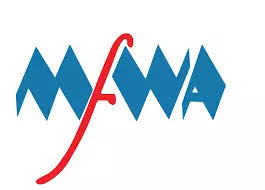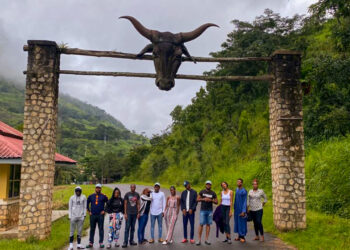The Media Foundation for West Africa (MFWA) has called on journalists across the region to hold digital systems accountable to ensure that Africa’s ongoing digital revolution remains fair, inclusive, and respectful of human rights.
Executive Director of MFWA, Mr. Sulemana Braimah, made the call on Thursday in Accra, Ghana, at the opening of the 8th West Africa Media Excellence Conference and Awards (WAMECA), themed “Journalism and Digital Public Infrastructure (DPI) in Africa.”
Braimah described digital public infrastructure—such as digital IDs, interoperable payment systems, and data exchange platforms—as “the highway upon which Africa’s next chapter of growth will travel.”
He, however, cautioned that without rigorous media oversight, these systems risk becoming efficient but unjust, powerful but unaccountable.
“No matter how sophisticated a piece of technology is, it cannot drive development if it is not accompanied by trust, transparency, inclusion, privacy, and respect for human rights,” Braimah said.
He urged journalists to investigate who is included or excluded from digital platforms, how citizens’ data and identities are safeguarded, and whether digital payment systems reinforce inequality.
To strengthen that watchdog role, Braimah announced that MFWA, in partnership with Co-Develop and other funders, had launched a DPI Journalism Fellowship across West Africa.
“So far, the fellows have produced a total of 376 stories,” he said, noting that 65 journalists from 10 countries, including Nigeria, had been trained to report on DPI governance and implementation.
Akua Owusu-Darko, Senior Investment Associate at Co-Develop, described digital infrastructure as “the new public good,” stressing that its design and governance would shape Africa’s socio-economic trajectory.
“We believe digital infrastructure must be built and managed in ways that are safe, inclusive, people-centric, and grounded in human rights,” she said, adding that fellowship reports had already influenced policy discussions on birth registration, data protection, and digital tax laws.
Ebenezer Asiedu, Head of Democracy and Good Governance at the ECOWAS Commission, highlighted regional efforts to develop a West African biometric identity and harmonised mobile communication policies to strengthen integration and affordability.
He emphasised the need for the media to build public awareness and trust, ensuring that such systems serve citizens rather than deepen exclusion.
Opening the conference on behalf of Ghana’s Ministry of Communications, Deputy Minister Mohammed Sukparu echoed the importance of ethical journalism in the digital era.
Quoting UN Secretary-General António Guterres, Sukparu said technology can be “a force for good” only when it protects rights, serves people, and broadens opportunity.
“A strong, free, and ethical media is the bedrock of digital democracy,” he stated.
The three-day WAMECA conference brought together journalists, technologists, policymakers, regional institutions, and development partners, including Co-Develop and DW. The event will conclude with an awards ceremony on Saturday, recognising outstanding DPI reporting that promotes transparency and inclusion.





